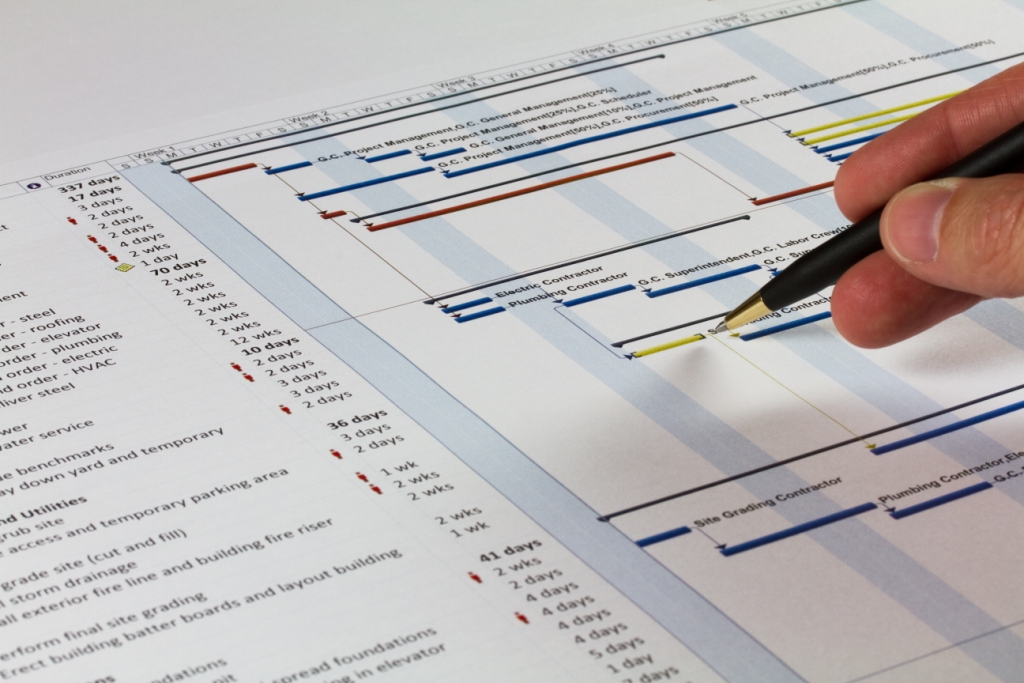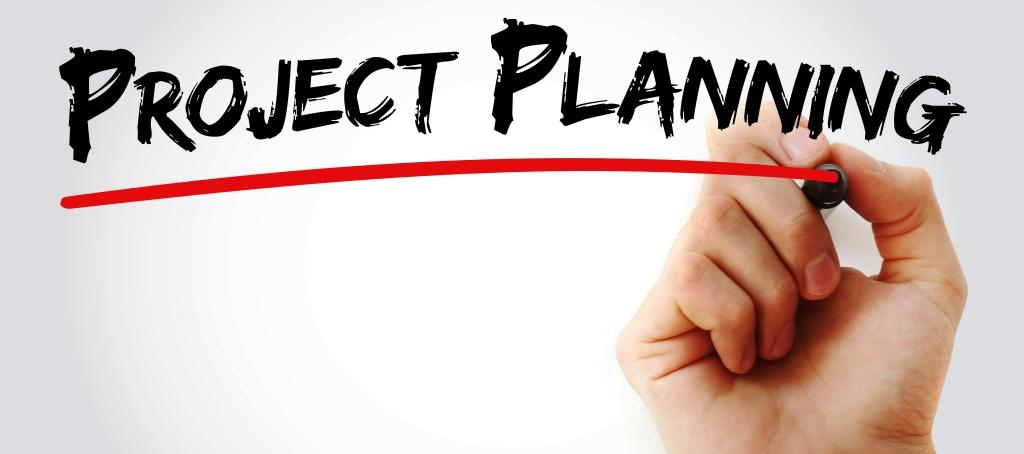As young project managers we were taught that our key role was to deliver the Project Plan. We were told that planning determined the success of our projects. So, we were required to prepare a Project Plan at the start of each project.
But before we get in to why people are reluctant to prepare Project Plans, let’s define what it is.
What is a Project Plan?
It is a formal document approved by management which is to be used to control the project. It defines the baseline against which our project’s performance could be monitored. It describes the project objectives.
What should be in the Project Plan?
As a minimum it should cover:
- The scope of work, tasks and deliverables;
- Schedule and milestones;
- Resources, organisation chart, roles and responsibilities;
- Risks register, mitigation measures and management;
- Change management plan;
- Safety plan;
- Contractual, client and stakeholder details;
- Reporting requirements;
- Communication protocol;
- Quality assurance, verification processes and their management; and
- Fee, expenses, contingencies and profit.
For the project to be successful, you need to have your team’s buy-in. Your Project Plan can be used as a means by which to get the conversation started and to get the buy-in of your team.
Is your team preparing Project Plans?
If you are part of the senior management of engineering consulting firm, ask your project managers if they have a Project Plan for all their projects.
What do you think they will tell you?
If the answer is “no”, then you can rest assured your projects as well as their time, budgets and resources are not being managed efficiently.
From my experience, many companies are successful at creating the project planning and management procedures , but they are less successful at getting their project managers to use them. For example, one of the larger multi-national engineering consulting firms, the management team that I spoke to was very proud of the procedures, the workflows and the necessary forms that they had for their project managers to prepare project plans. But on closer examination they realised that 70% of their projects did not have Project Plans and the remaining 30% had inadequate or incomplete Project Plans.
, but they are less successful at getting their project managers to use them. For example, one of the larger multi-national engineering consulting firms, the management team that I spoke to was very proud of the procedures, the workflows and the necessary forms that they had for their project managers to prepare project plans. But on closer examination they realised that 70% of their projects did not have Project Plans and the remaining 30% had inadequate or incomplete Project Plans.
Let me be absolutely clear. If your project manager’s heart is not in to planning, he/she is not ready to be a manager and is putting you and your organisation at risk.
Equally, if you have not provided your project managers with the detailed procedures and the required training that allows them to know exactly how to prepare and monitor their Project Plans, then you have some work to do.
Why are some people reluctant to plan?
Here some of the common reasons:
Eager to Move Ahead
Some people are eager to get on with it. When they win a new project, they get excited and want to start taking action. So, when they are asked to plan, with every passing moment they get more and more anxious that they have not started taking action yet. They see themselves as doers and not planners. Whether they admit/realise it or not, they perceive project planning as something you should spend as little time on as possible. They just want to move forward and show tangible results immediately.
Whilst I may have some sympathy for that sentiment, to me, without planning you don’t know where you will end up with the project. The Project Plan is part of your risk management strategy. It helps you mitigate the risks that could put your project’s profitability, program, client satisfaction, quality of work (amongst other things) at risk.
When you plan the schedule and the work breakdown structure that are aligned with your contractual obligations you will become fully familiar with the scope of work. Inadequate understanding of the detailed scope of work will come back to haunt you. So, plan.
One word of warning: Prepare a realistically achievable project schedule. Problems associated with being overzealous are not easy to solve.
Project Plans Require Commitment
When you plan, you have to think it all through and commit to a set of tasks, durations, cost etc. Some people feel a detailed Project Plan could tie their hands. It is too official and could be a pain in the neck, as the project manager would be required to commit to it. There are some who don’t want to stick their necks out and be held accountable for every aspect of the plan. Some actually prefer to work in the grey. To them vague is good. It leaves them with more options.
I trust we all agree that we want our project managers’ total commitment to their projects. So, preparing good Project Plans and obtaining the senior management’s sign-off on the Project Plan is one of the key ways of making sure your project manager is truly prepared for the project.
Fear of Being Held Responsible
Some feel that if it isn’t written down, they can’t be held responsible for a task. If they plan and record their plan, they have to justify why they have deviated from their plan. They don’t want that responsibility.
Again, I feel it is quite obvious that the senior management of a firm would want their project managers to take ownership and be responsible for their projects. This does not mean that the senior management has no role in the matter. Part of the Project Plan is to describe the roles and responsibility of the project director, who would be managing, mentoring and monitoring the performance of the project manager on behalf of the firm. Making sure you have the right person as the project manager for the size and complexity of the project is one of the first tasks of the senior management.
Needs to Be Maintained
If it is recorded and made part of a formal document, it has to monitored and updated. Some would consider this as a waste of time. They could be out there doing the work rather than being in the office trying to justify why this plan has to be updated.
 We all know that any living thing is subject to change. Project Plans are no exception. A live project, no matter how great the plan will face challenges and has to adjust its course. I suppose we have to ask ourselves, have we ever had a project that has gone totally (100%) as planned? I haven’t ever had one.
We all know that any living thing is subject to change. Project Plans are no exception. A live project, no matter how great the plan will face challenges and has to adjust its course. I suppose we have to ask ourselves, have we ever had a project that has gone totally (100%) as planned? I haven’t ever had one.
So, what we must do is to build in flexibility and allow for changes in the plan. Don’t ignore the possibility of change. But once the change is identified, the Project Plan would need to be updated and the senior management would have to be notified, consulted and be asked to approve the changes.
So, if the project manager is reluctant to update his/her Project Plans on regular basis, you, as the Senior Manager should look in to this, because there could be a complicated story why the Project Plan has not been updated. You need to know the story and mitigate its risks.
One tip: Keep the Project Plan simple. It should have adequate amount of details to ensure its effectiveness, but does not have to be very complex. Over complex plans are impossible to manage.
Preparing a realistic cost and resource plan as part of the initial project planning exercise will be invaluable to you. Underestimating these will be painful to you and your organisation.
Never needed it before
Yes, it is possible to do the work without the Project Plan, but very inefficiently. Yes, maybe in the past some people didn’t plan their projects, but the market has become a lot more competitive and legally challenging that If you don’t plan you are not only not able to maximise your profitability, but also at risk of a whole host of legal and contractual challenges.
In Conclusion
In conclusion, as mentioned at the start of this blog, project managers’ job is to deliver the Project Plan. The more time you spend on preparing a good Project Plan the higher the likelihood of your project being truly profitable and being a project to be proud of.
Let me know your thoughts.

